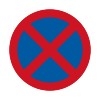Perth and Kinross offers some of Scotland's most breathtaking landscapes, from tranquil lochs to rugged mountains, making it a perfect place to explore the outdoors.
Whether you're staying at a campsite or exploring more remote areas, camping here is a rewarding experience when done responsibly.
Our Explore Outdoor map is a great companion for planning your trip and navigating while you're here. Find essential information like camping and caravan sites, parking, public toilets, EV charge points, water refill stations, walking routes, and more. It's designed to help you stay prepared, tread lightly, and make the most of your time in Perth and Kinross.
Your right to camp
Thanks to the Land Reform (Scotland) Act 2003, everyone has the right to access most land for recreation, including wild camping (camping outside of organised campsites).
To make the most of this right, it's important to understand your responsibilities. Access rights include responsible lightweight camping in tents, in small numbers and for two or three nights in any one place, keeping well way from buildings and roads.
Learn more about your outdoor access rights and responsibilities page.
Wild camping: how to camp responsibly
Wild camping is a fantastic way to connect with nature. Before you go, take a moment to read how to be a cool camper with the Scottish Outdoor Access Code.
By following a few simple principles, you can help protect the environment and ensure everyone enjoys the outdoors:
- Pitch your tent away from enclosed fields, farms, houses or other buildings. If you must camp near someone's home, ask permission first. Remember, enclosed fields may have livestock in them.
- Never light open fires, BBQs, or fire bowls when wildfire warnings are in place from Scottish Fire and Rescue or during prolonged dry periods.
- Use a camping stove over an open fire. If you do light a fire, please keep it small, supervised, and well away from trees, buildings, and dry ground. Make sure the fire is fully extinguished and remove all trace of an open fire before you leave the area.
- Know what to do when you poo! Carry a trowel to bury your own waste at least 30 metres from water or use a bag and take it home. Urinate far away from open water, river and burns.
- Park your vehicle with care and ensure it is not blocking roads, gates, or access routes.
- Leave no trace and take all your belongings and litter home with you, including your tent.
By following these actions above, you are helping to protect our stunning landscapes and wildlife, while supporting positive relationships with our local communities. Thank you and enjoy your visit.
Parking and road restrictions
During busy periods, rural roads can become congested, and poor parking can create serious issues for residents, farmers, and emergency services.

To keep everyone safe,rural clearways have been introduced at several popular locations. The image shows the clearway sign highlighting you are not allowed to stop or park, even briefly. Avoid penalty charge notices and park safely and legally for everyone.
Report concerns about "dirty camping"
Most campers enjoy the outdoors responsibly, however, a small number of campers act irresponsibly or in an antisocial manner while camping.
Behaviours such as illegal parking, littering, being inconsiderate to nearby residents, fly-tipping, unsafe fires (including lighting fires during a wildfire warning), failing to dispose of human waste properly, can cause damage and harm to our landscapes, wildlife and communities.
Help us stop this behaviour by reporting:
- If you believe a crime is being or has been committed, call 999 or 101 and ask for Police Scotland.
- If you believe a situation may cause immediate damage to our landscapes, including someone starting a fire during a wildfire warning, call 999 and ask for the relevant emergency service
- For all other dirty camping concerns, please email VisitorManagementGroup@pkc.gov.uk
Our Community Support and Enforcement Team work on behalf of communities, carrying out patrols and liaising with other partners such as Police Scotland, Scottish Fire and Rescue, Land Forestry and local community groups to address any issues which may have a detrimental effect on our communities.
Your reports help us build a clearer picture of what's happening, identify areas of concern and will help shape future patrols and improvements. Thank you.
Other helpful resources
- The Scottish Outdoor Access Code provides guidance on enjoying the outdoors responsibly
- The Young Scot #KnowTheCode Campaign provides a series of 12 helpful videos setting out rights and responsibilities
- The Scottish Fire and Rescue Service provides fire and water safety advice
- What 3 Words an easy way to find and share accurate locations.
- Stay the night in one of Forestry and Land Scotland car parks with your self-contained motorhome or campervan.




